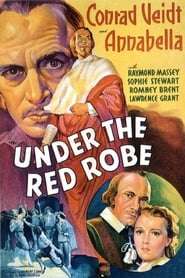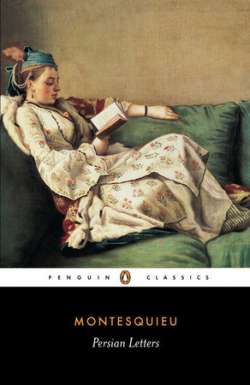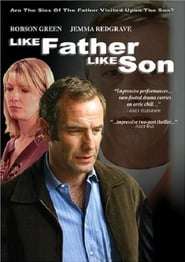« Return to all search results
Title Search Results

Told by a master storyteller who, according to critic Russell Nye, “combined adventure, action, violence, crisis, conflict, sentimentalism, and sex in an extremely shrewd mixture,” Riders of the Purple Sage is a classic of the Western genre. It is the story of Lassiter, a gunslinging avenger in black, who shows up in a remote Utah town just in time to save the young and beautiful rancher Jane Withersteen from having to marry a Mormon elder against her will. Lassiter is on his own quest, one that ends when he discovers a secret grave on Jane’s grounds. “[Zane Grey’s] popularity was neither accidental nor undeserved,” wrote Nye. “Few popular novelists have possessed such a grasp of what the public wanted and few have developed Grey’s skill at supplying it.”

Independent and spirited Bathsheba Everdene has come to Weatherbury to take up her position as a farmer on the largest estate in the area. Her bold presence draws three very different suitors: the gentleman-farmer Boldwood, the soldier-seducer Sergeant Troy, and the devoted shepherd Gabriel Oak. Each, in contrasting ways, unsettles her decisions and complicates her life, and tragedy ensues, threatening the stability of the whole community.

In 1620s France, dreaded swordsman Gil de Berault returns from carrying out a mission for Cardinal Richelieu, and finds the Cardinal worried about growing opposition from the Huguenots in the south. The Cardinal also warns de Berault that dueling has been outlawed, and will henceforth be punishable by death. Gil, however, promptly disobeys the law and is indeed sentenced to death. The Cardinal offers to cancel the sentence if de Berault is able to capture the duke who is organizing plans for an uprising. Gil travels to the duke's castle and is allowed to stay as a guest, but the duke's wife and sister immediately suspect that he is a spy. He and his servant still make good progress, until he falls in love with the duke's sister, which complicates everything.

An atheist goes through a near-death experience in an auto accident before converting to Christianity.

This richly evocative novel-in-letters tells the story of two Persian noblemen who have left their country—the modern Iran—to journey to Europe in search in wisdom. As they travel, they write home to wives and eunuchs in the harem and to friends in France and elsewhere. Their colorful observations on the culture differences between West and East conjure up Eastern sensuality, repression, and cruelty in contrast to the freer, more civilized West—but here also unworthy nobles and bishops, frivolous women in fashion, and conceited people of all kinds are satirized. Storytellers as well as letter-writers, Montesquieu’s Usbek and Rica are disrespectful and witty, but also serious moralists. Persian Letters was a succès de scandale in Paris society, and encapsulates the libertarian, critical spirit of the early eighteenth century.C. J. Betts’s translation conveys the color of the original, and his introduction examines the inner meanings of Montesquieu’s satire. This edition also includes explanatory notes, appendices, and suggestions for further reading.

With bravura storytelling, stunning authenticity, and unforgettable characters, The Russian Affair brings readers into a world of love, intrigue and espionage in the midst of the Cold War. Twenty-nine-year-old Anna Viktorovna lives in Moscow with her young son and her father, a once popular and respected poet who has fallen into disgrace because of his dissident views. Her husband, a junior officer in the Red Army, is on active duty and living seven time zones away. When she meets Alexey Bulgyakov, a married and powerful Soviet official who is nearly twice her age, her life begins to look a little brighter. Yet their burgeoning romance is irrevocably threatened when a KGB colonel forces Anna to spy on Alexey, who is suspected of disloyalty to the state. Though she loathes the notion of double-crossing, she is forced to comply. But Anna isn't the only character playing a double game.

The Perfect American is a fictionalized biography of Walt Disney's final months, as narrated by Wilhelm Dantine, an Austrian cartoonist who worked for Disney in the 40s and 50s, illustrating sequences for Sleeping Beauty. It is also the story of Dantine himself, who desperately seeks Disney's recognition at the risk of his own ruin.Peter Stephan Jungk has infused a new energy into the genre of fictionalized biography. Dantine, imbued with a sense of European superiority, first refuses to submit to Disney's rule, but is nevertheless fascinated by the childlike omnipotence of a man who identifies with Mickey Mouse. We discover Walt's delusions of immortality via cryogenic preservation, his tirades alongside his Abraham Lincoln talking robot, his invitation of Nikita Khruschev to Disneyland once he learns that the Soviet Premier wants to visit the park, his utopian visions of his EPCOT project, and his backyard labyrinth of toy trains. Yet, if at first Walt seems to have a magic wand granting him all his wishes, we soon discover that he is as tortured as the man who tells his story.After Disney refuses to acknowledge Dantine's self-professed talent and hard work, he fires the frustrated cartoonist for writing, along with other staff members, an anonymous polemical memorandum regarding Disney's jingoistic politics. Years later, in the late 60s, still deeply wounded by his dismissal, Dantine follows Disney's trail to capture what makes Walt tick. Dantine wants us to grasp what it is like to live and breathe around the man who thought of himself as more famous than Santa Claus. Walt's wife Lillian, his confidante and perhaps his mistress Hazel, his brother Roy, his children Diane and Sharon, his close and ill-treated collaborators, and famous figures such as Peter Ustinov, Salvador Dali, Andy Warhol, and Geraldine Chaplin, all contribute to the novel's animation, its feel for the life of the Disney world. This deeply researched work not only provides interesting interpretations of what made Walt Disney a central figure in American popular culture, but also explores the complex expectations of gifted European immigrants who came to the United States after World War II with preconceived notions of how to achieve the American dream.

Meet Will Swyfte—adventurer, swordsman, rake, swashbuckler, wit, scholar and the greatest of Walsingham's new band of spies. His exploits against the forces of Philip of Spain have made him a national hero, lauded from Carlisle to Kent. Yet his associates can barely disguise their incredulity—what is the point of a spy whose face and name is known across Europe? But Swyfte's public image is a carefully-crafted façade to give the people of England something to believe in, and to allow them to sleep peacefully at night. It deflects attention from his real work—and the true reason why Walsingham's spy network was established. A Cold War seethes, and England remains under a state of threat. The forces of Faerie have preyed on humanity for millennia. Responsible for our myths and legends, of gods and fairies, dragons, griffins, devils, imps and every other supernatural menace that has haunted our dreams, this power in the darkness has seen humans as playthings to be tormented, hunted or eradicated. But now England is fighting back! Magical defences have been put in place by the Queen's sorcerer Dr. John Dee, who is also a senior member of Walsingham's secret service and provides many of the bizarre gadgets utilised by the spies. Finally there is a balance of power. But the Cold War is threatening to turn hot at any moment... Will now plays a constant game of deceit and death, holding back the Enemy's repeated incursions, dealing in a shadowy world of plots and counter-plots, deceptions, secrets, murder, where no one... and no thing... is quite what it seems.

Life for Dee Stanton is improving at every turn. Her legal career is blossoming and her boyfriend Dominic unexpectedly proposes to her. Things were very different 11 years ago when her husband Paul was jailed for the brutal murders of four girls and Dee was hounded from her home. Dee has kept all this a secret from her 15-year-old son Jamie. Now he has discovered the truth about his father and demands to see him.

Winner of the 2013 Jan Michalski PrizeLonglististed for the Man Asian Literary PrizeA new novel by the master of Iranian letters that directly engages politics in Iran today Ten years in the writing, this fearless novel—so powerful it’s banned in Iran—tells the stirring story of a tortured people forced to live under successive oppressive regimes. It begins on a pitch black, rainy night, when there’s a knock on the Colonel’s door. Two policemen have come to summon him to collect the tortured body of his youngest daughter. The Islamic Revolution is devouring its own children. Set over the course of a single night, the novel follows the Colonel as he pays a bribe to recover his daughter’s body and then races to bury her before sunrise.As we watch him struggle with the death of his innocent child, we find him wracked with guilt and anger over the condition of his country, particularly as represented by his own children: a son who fell during the 1979 revolution; another driven to madness after being tortured during the Shah’s regime; a third who went off to martyr himself fighting for the ayatollahs in their war against Iraq; one murdered daughter, and another who survives by being married to a cruel opportunist.An incredibly powerful novel about nation, history and family, The Colonel is a startling illumination of the consequences of years of oppression and political upheaval in Iran.
